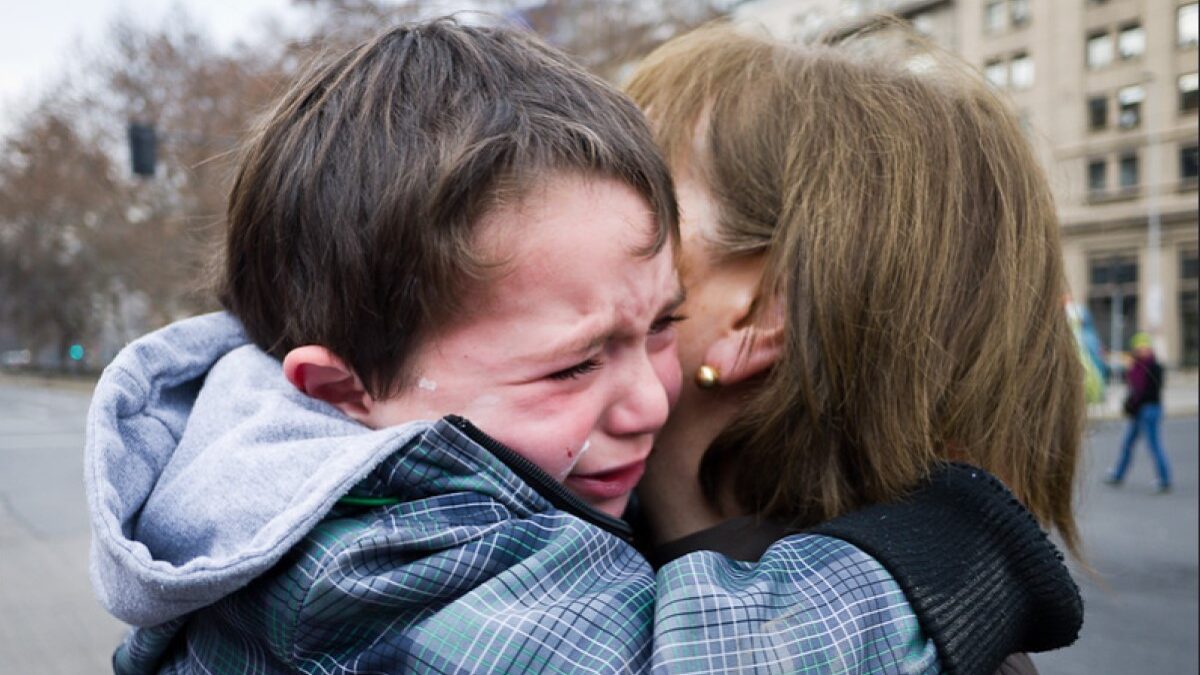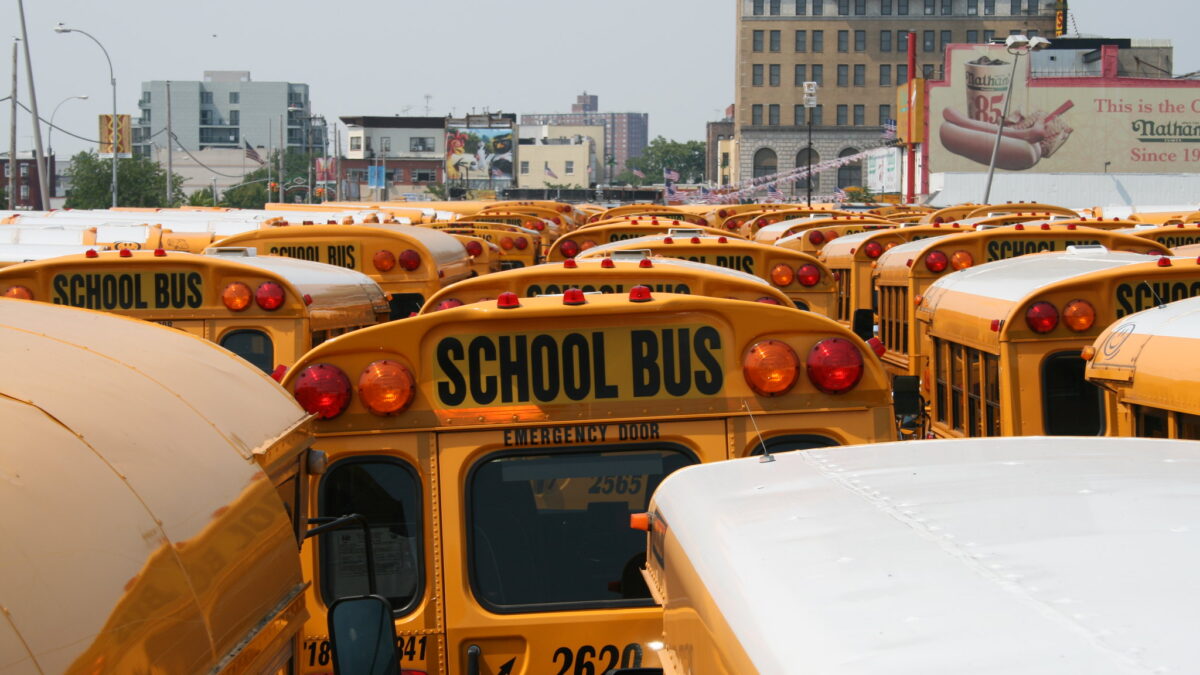Low-income children who attended Tennessee’s highly praised preschool program performed significantly worse on every academic and social measurement by sixth grade compared to peers who did not attend the program, a recent high-quality study found.
“[T]he children randomly assigned to attend Pre-K had lower state achievement test scores in third through sixth grades than control children, with the strongest negative effects in sixth grade,” summarize the Vanderbilt University study authors. “A negative effect was also found for disciplinary infractions, attendance, and receipt of special education services…”
Enrollment in preschool programs has exploded in the United States since 1980, the study authors note, from very few four-year-olds to approximately two-thirds today. But approximately half of four-year-olds who attend preschool do so part-time. Tennessee’s statewide Voluntary Preschool (TN-VPK) program, by contrast, was relatively time-intensive, requiring its low-income students to be in classrooms of up to 20 total children for at least 5.5 hours a day.
This study suggests family care is better for four-year-olds than TN-VPK. The only positive results for TN-VPK participants compared to non-TN-VPK peers occurred at the end of preschool. Then from third through sixth grade, only negative results were documented for TN-VPK participants, and the negative effects increased over time.
“On the sixth grade TNReady tests, control children [who mostly didn’t attend preschool] continued to outperform the TN-VPK children in reading, mathematics, and science, with statistically significant differences larger than those observed in third grade,” the study says.
This trend of increasingly negative disparities over time among preschool attendees also affected student behavior records, the study says: “All analyses revealed higher rates of recorded disciplinary events for TN-VPK participants than non-participants, and these differences were statistically significant except for the weighted analysis for major offenses.”
These negative behavioral findings included decreased rates of school attendance, violations of school policies such as cheating and disobeying the dress code, being held back a grade, and being diagnosed with a learning disability or emotional disturbance.
The study authors expressed surprise at their results, as did their 2018 report that looked at the third-grade outcomes for the same 2,990 children. But they stood by their data.
“If the programs we have created do not produce the desired effects, the findings themselves should not be dismissed simply because they were unanticipated and unwelcome,” write the authors, Kelley Durkin, Mark Lipsey, Dale C. Farran, and Sarah Wiesen, in the study.
Farran told NPR, “This is still the only randomized controlled trial of a statewide pre-K, and I know that people get upset about this and don’t want it to be true.”
But a longtime preschool teacher and nanny writing for the Institute of Family Studies about the Tennessee results, Tara Thieke, wasn’t surprised by these results at all.
“I observed that even the highest quality care could elicit sustained traumatic responses,” she wrote. “…I believe that what is celebrated as adjustment (‘see, they’re fine!’) was more frequently a sign of the child learning the futility of crying out. … Separation from the staff with whom they spent most of their time became as traumatic as separation from parents. Stressful transitions and confusion flooded the child’s body: as repeated studies have shown, the levels of the stress-hormone cortisol remain elevated for children in institutionalized care compared to children in a home setting.”
This is not the only study, or the only good-quality study, to find similarly negative consequences of enrolling children in preschool. Many do.
For example, recent studies of a large government childcare program for children ages 0 to 5 in Quebec found participants experienced significant increases in anxiety, aggression, hyperactivity, and crimes committed. One study on the Quebec program found “children exposed to the program were 4.6 percent more likely to be convicted of a crime and 17 percent more likely to commit a drug crime. Their health and life satisfaction were worse.”
Leftists devote plenty of discussion to the “school-to-prison pipeline” they say is the result of school discipline for unruly children. Based on the most robust evidence about mass early childhood institutionalization, however, it seems it’s more statistically legitimate to suggest a “preschool to prison pipeline.”
Federal studies on nonmaternal care for preschool-age children have repeatedly found:
the more time children spent in any kind of non-familial child care, and sometimes specifically in centers, the more aggressive and disobedient they proved to be at two (but not three) and 4.5 years of age, as well as across their elementary school years; and the more impulsive they proved to be at age 15, at which age they also engaged in more ‘risky’ behavior than children who experienced far less non-familial care across their first five years of life.
The only other randomized trial of preschool enrollment besides this TN-VPK project, conducted on the federal Head Start program, found that preschool enrollment did not measurably improve life and academic outcomes for the children enrolled. If anything, children enrolled in Head Start showed worse math and emotional outcomes than peers who did not. That study extended only to third grade, and the release of the results was delayed.
These studies demonstrate the bankruptcy of politicians’ desire to increase government subsidies for separating young children from their families. TN-VPK has been widely touted by politicians and media as a model for other states and is ranked as having 9 out of 10 elements of a “high-quality” program by the National Institute of Early Education Research.
“Tennessee’s pre-K program is the kind of state initiative that President Obama wants to provide incentives to states to expand,” said Education Secretary Arne Duncan in a 2013 speech. President Joe Biden’s signature Build Back Better cradle-to-grave welfare proposal includes a massive expansion of government childcare. The proposal aims to institute universal government preschool for three- and four-year-olds and subsidized daycare for children as young as babies.
Tennessee’s program includes what preschool advocates say are marks of high-quality programs: paying teachers as much as K-12 public school counterparts, hiring only state-licensed teachers, putting a teacher’s aide in every classroom, and following a state-determined curriculum. But none of these, the study authors note, has been proven to actually benefit children.
In fact, studies have also thrown cold water on the idea that teacher certification improves teacher quality, as measured by students’ academic growth: “There have been three very large studies, the latest one in 2018, which are not showing any relationship between quality and [teacher] licensure,” Farran also told NPR.
As a randomized, controlled trial, the highest-quality available to social science, the Tennessee study is rare. Most preschool studies are less rigorous and conducted by open advocates for large-scale child-parent separation. The 79 TN-VPK locations that had more applicants than room awarded entrance randomly, allowing for a robust test group of 2,990 children.
Of the control group, 63 percent were cared for at home in their preschool year. The rest attended a mix of government and private preschools and daycares. This suggests the negative effects of preschool might be even stronger than this study indicates, since two-fifths of the control group also experienced preschool environments at age 4.









